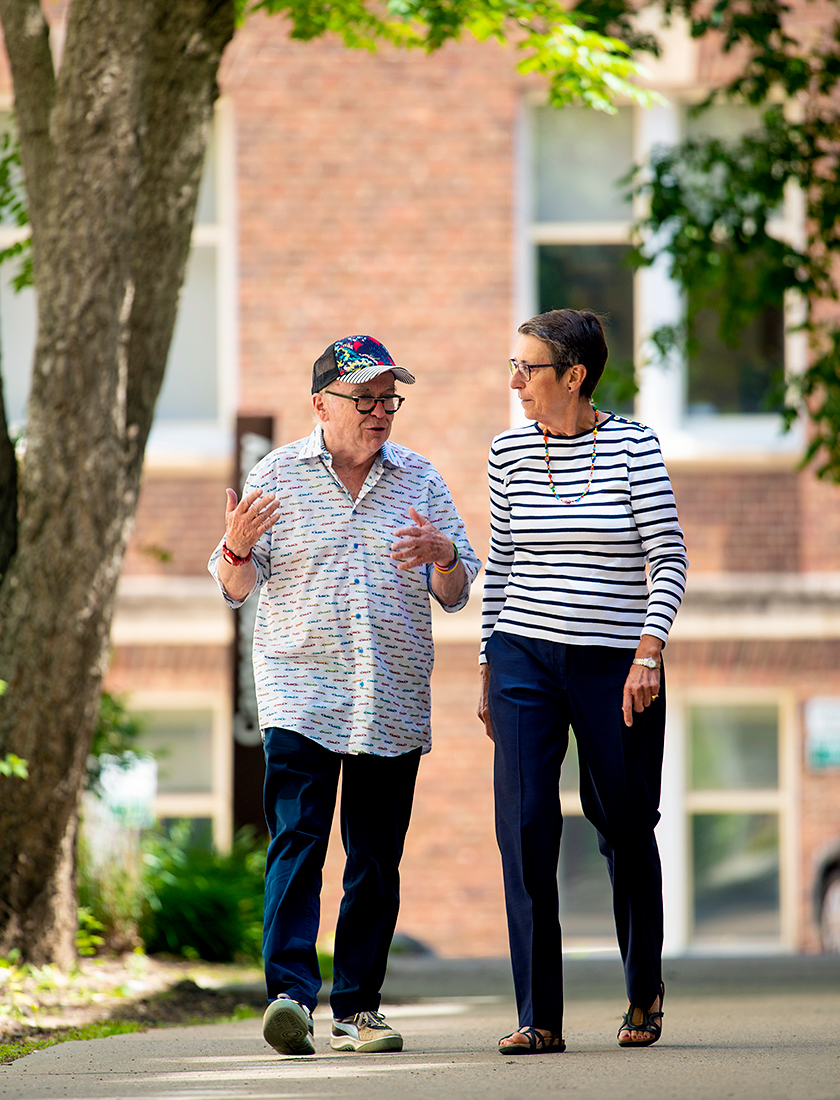The early career of Barbara Romanowski, '71 BScMed, '73 MD, coincided with the rise of the HIV epidemic in the 1980s. The expert on HIV and sexually transmitted infections sat down with longtime colleague Michael Phair, chair of the U of A Board of Governors, to talk about the leadership, compassion and challenges of that time. Romanowski is one of 23 recipients of a 2018 Alumni Award.
MP: The first media conference we did in Edmonton, do you remember what you talked about?
BR: I don't have a vivid memory but I remember those days well and the media activity and how they wanted to sensationalize this disease. I think back with horror when these individuals were hospitalized and signs went up on the doors saying, "Contaminated. Do not enter." It was the Dark Ages. I kept saying to the media, "This is not a gay disease." I saw education as part of my job.
MP: I remember those days. I remember visiting individuals in the hospital and taking food in because some of the staff left food at the door. No one lived more than two years at that time. I'm sure that had an impact on you.
BR: It had a tremendous impact. I did not learn in medical school how to provide palliative care but that's what we were doing. I went to many funerals in the first few years of HIV care and it took a personal toll. There came a point where I had to step back. There were too many.
MP: Oh, everyone died. … There were funeral homes that wouldn't deal with them. There were also some religious organizations that wouldn't perform the usual kind of ceremony.
BR: I find it extremely difficult to accept that a family would reject someone based on sexual orientation and, in those days, the type of disease that they had. On a positive note, oh, my God, we've gone so far in 30 years. We now have a disease that is manageable. Patients should look forward to living to a geriatric age. Having said that, I think continued education is as important, if not more so, than it was in the early years, because people have become complacent.
MP: Well, thank you for all the wonderful work that you've done then and are still doing. You'll never know how much it meant to people like me and the others that I work with, and the people who unfortunately died.
BR: There were lots of sad times. There were some good times as well. One moves forward with a balance of the sad times and the pleasant times.
This conversation was edited for length and clarity.

We at New Trail welcome your comments. Robust debate and criticism are encouraged, provided it is respectful. We reserve the right to reject comments, images or links that attack ethnicity, nationality, religion, gender or sexual orientation; that include offensive language, threats, spam; are fraudulent or defamatory; infringe on copyright or trademarks; and that just generally aren’t very nice. Discussion is monitored and violation of these guidelines will result in comments being disabled.